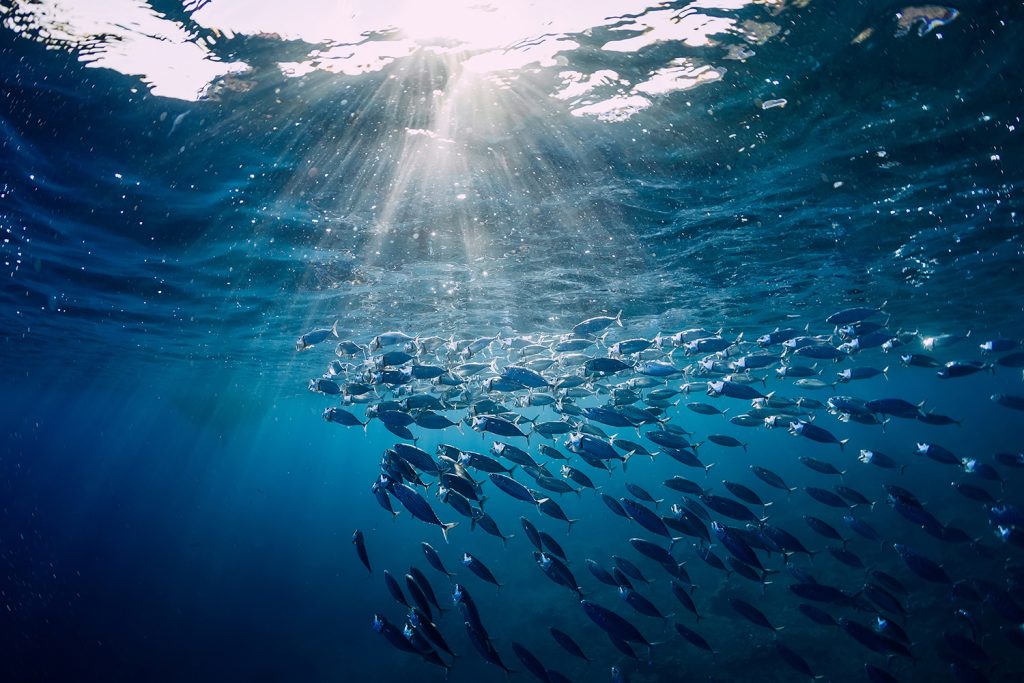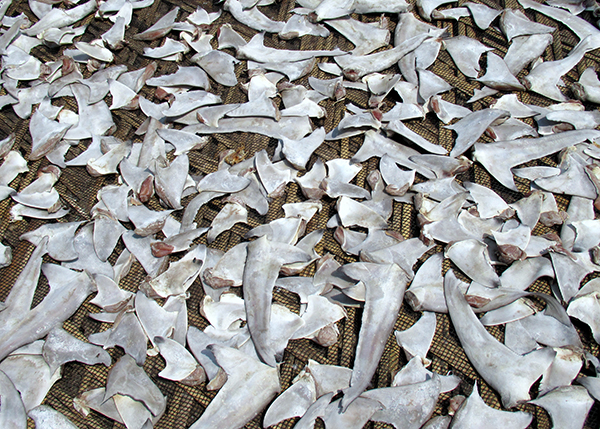Findings reveal ‘clear signs’ of shark population recovery in areas with effective fisheries management

A new study from Virginia Tech’s College of Natural Resources and Environment has found that the extinction risk of sharks and rays can be significantly reduced by having effective fisheries management and policies in place to ensure the survival of these vulnerable species.
“You can see it in the data,” said Holly Kindsvater, assistant professor in the Department of Fish and Wildlife Conservation and one of the authors of the paper. “Even in places where fishing intensity is high but management exists, the regional status of these endangered species is improving significantly.”
The study, which was published in the Proceedings of the National Academy of Sciences, used decades of data to track shark and ray populations in western Atlantic waters and measure population changes since the U.S. Department of Commerce asked the National Marine Fisheries Service to implement a Fishery Management Plan for Atlantic sharks in 1993.
“It took years of work to gather data on shark populations and fisheries data,” said Nathan Pacoureau, a postdoctoral research fellow at Simon Fraser University in Canada, the paper’s lead author and a former postdoctoral research fellow at Virginia Tech. “From there, the challenge was determining the primary elements to the recovery of sharks in some areas and driving increased extinction risk in others.”
The findings show a positive trajectory for shark populations where regulations have been put in place, with large species such as the great white, tiger and great hammerhead shark – which are elsewhere endangered – all showing clear signs of population recovery in northern Atlantic waters.
Sharks and rays still face challenges: the group’s finding demonstrates that coastal populations in the southern Atlantic remain critically threatened, and the demand for shark meat and fins can provide lucrative livelihoods to fishers, despite international treaties in place to prevent the trade of shark and ray species that are fished unsustainably. Sharks and rays also are caught unintentionally in fisheries for bony fishes: without robust policy measures, this can significantly reduce their populations.
“In the milieu of marine conservation, some think it’s hopeless to try to manage shark fisheries, that illegal trade will always exist,” said Kindsvater. “What this research shows is that it is possible to significantly improve the population health of a species by monitoring and managing fisheries.”
Now that you've reached the end of the article ...
… please consider supporting GSA’s mission to advance responsible seafood practices through education, advocacy and third-party assurances. The Advocate aims to document the evolution of responsible seafood practices and share the expansive knowledge of our vast network of contributors.
By becoming a Global Seafood Alliance member, you’re ensuring that all of the pre-competitive work we do through member benefits, resources and events can continue. Individual membership costs just $50 a year.
Not a GSA member? Join us.
Author
Tagged With
Related Posts

Fisheries
Fisheries management help tunas, billfishes recover, but extinction risk of sharks rises
New study suggests conservation and fisheries management help tunas and billfishes recover, but shark biodiversity continues to decline.

Fisheries
Fisheries in Focus: Tunas and billfishes are improving on the IUCN Red List – and it’s thanks to effective fisheries management
Sustainable Fisheries UW offers a rundown of the IUCN Red List and how tunas and billfishes benefit from strong fisheries management.

Fisheries
Could an electric-pulsed device help mitigate shark bycatch in longline fisheries?
Research shows that SharkGuard, an electric-pulsed device that attaches to longline fishing rigs, can significantly reduce shark bycatch.

Fisheries
Bangladesh moves to protect threatened sharks and rays
With sharks and rays critically endangered, the government of Bangladesh has amended legislation to reduce the extinction risk of the species.



